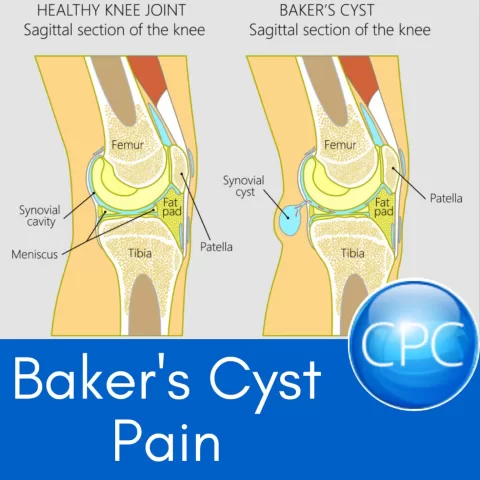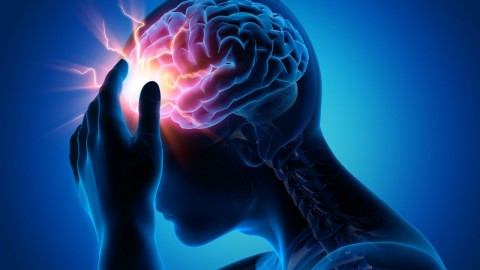Deep learning autoimmune diseases represent a revolutionary approach in understanding and predicting autoimmune disorders that have long perplexed the medical community. By leveraging advanced deep learning models, researchers are now able to analyze complex data sets, including T cell receptor (TCR) sequencing, to uncover patterns that could predict the onset of various autoimmune diseases with remarkable accuracy. The integration of machine learning in healthcare has paved the way for innovative predictive strategies, positioning these technologies at the forefront of autoimmune disease prediction. With growing evidence on the role of TCRs in autoimmune disease pathogenesis, deep learning algorithms can enhance early diagnosis and personalized treatment plans. This intersection of biotechnology and artificial intelligence could lead to transformative advancements in managing these debilitating conditions, significantly improving patient outcomes.
The exploration of advanced computational methodologies for forecasting and understanding autoimmune disorders refers to deep learning applications for autoimmune diseases. This intricate realm focuses on how state-of-the-art machine learning techniques, including neural networks, can analyze genetic and immunological data to yield insights into autoimmune disease prediction. Furthermore, the analysis of T cell receptors (TCRs) through TCR sequencing becomes essential in recognizing specific patterns tied to various autoimmune conditions. These efforts highlight the essential role of artificial intelligence in enhancing healthcare, ultimately contributing to better disease management strategies and therapeutic interventions. As research in this domain progresses, we can anticipate more robust and reliable models that pave the way for significant breakthroughs in clinical practice.
Understanding Autoimmune Diseases and Their Challenges
Autoimmune diseases represent a complex group of disorders where the body’s immune system erroneously targets and attacks its own tissues. This chaotic immune response arises from a blend of genetic predispositions, environmental triggers, and defects in immune cell functioning, making the precise prediction and effective treatment of these diseases particularly challenging. A large segment of the population, especially in developed nations, suffers from these ailments, which come with high morbidity and mortality rates. Improving the understanding and prediction of these conditions is crucial for public health.
Recent advancements in technology have opened new avenues for predicting autoimmune diseases, including the application of machine learning algorithms. As researchers delve deeper into the intricacies of these disorders, they uncover critical insights related to T cell behaviors and genetic variations. By leveraging these findings, healthcare professionals can develop targeted therapies and preventive measures that better address the unique needs of patients suffering from autoimmune diseases.
The Role of T Cell Receptors in Autoimmune Disease Prediction
T cell receptors (TCRs) are instrumental in the pathogenesis of autoimmune diseases; variations in TCR specificity can provide insights into the onset and progression of these disorders. By understanding the diversity and frequency of different TCRs, researchers can correlate specific immune responses with various autoimmune conditions—offering a pathway for more accurate disease prediction. The identification of autoreactive T cells has led to the exploration of their potential as biomarkers, critical for early diagnosis and intervention.
The study of TCR sequencing (TCR-seq) is a vital aspect of examining the immune response associated with autoimmune diseases. By analyzing TCR sequences from affected individuals, scientists can identify unique signatures associated with specific autoimmune conditions, aiding in not only prediction but also in the development of personalized treatment strategies. By incorporating deep learning methodologies to analyze TCR-seq data, researchers can enhance the accuracy of autoimmune disease predictions, demonstrating the synergy between machine learning and immunology.
Deep Learning Models in Autoimmune Disease Prediction
In the landscape of autoimmune disease prediction, deep learning models like AutoY and LSTMY showcase advanced capabilities in analyzing complex patterns within immune data. The AutoY model, which is built upon a convolutional neural network architecture, exhibits exceptional performance in predicting diseases such as type 1 diabetes (T1D) and multiple sclerosis (MS) with particularly high area under the ROC curve (AUC) values. These models not only provide reliable predictions but also contribute to the understanding of the underlying immunological mechanisms.
Similarly, the LSTMY model utilizes bidirectional LSTM networks integrated with attention mechanisms, highlighting how deep learning can optimize predictive accuracy. While it slightly trails behind the AutoY model in performance, its effectiveness in the prediction of various autoimmune conditions underscores the versatility of deep learning approaches. This represents a significant step toward integrating sophisticated AI-driven solutions within healthcare, particularly for the prediction and management of autoimmune diseases.
Machine Learning in Healthcare: Towards Enhanced Autoimmunity Insights
The integration of machine learning in healthcare has the potential to revolutionize the management and prediction of autoimmune diseases. By harnessing vast datasets and applying advanced algorithms, researchers can discover subtle patterns that may elude traditional statistical methods. Machine learning tools, coupled with domain-specific knowledge, enable the identification of novel biomarkers and the development of robust predictive models that account for the multifactorial nature of autoimmune diseases.
Ultimately, machine learning not only brings efficiency but also promotes personalized medicine approaches in treating autoimmune diseases. The adaptability of these algorithms allows healthcare professionals to tailor treatment protocols based on individual patient data, improving outcomes and reducing the trial and error often seen in conventional therapies. As more data becomes available through advancements in TCR sequencing and related technologies, the precision of predictive models is expected to increase, paving the way for better healthcare solutions.
Future Directions in Predictive Modeling for Autoimmune Diseases
As the field of predictive modeling for autoimmune diseases evolves, researchers emphasize the importance of addressing current limitations such as small sample sizes and dataset biases. Future studies need to focus on comprehensive data collection from diverse populations to enhance model accuracy and generalizability. The amalgamation of biological insights with advanced machine learning techniques can significantly strengthen predictive frameworks, thereby providing more reliable outcomes for healthcare providers.
Additionally, future advancements may involve the incorporation of multi-omics data, integrating genetic, transcriptomic, and proteomic information to yield a more holistic view of autoimmune disease pathology. By enriching machine learning models with these diverse datasets, researchers can create layered predictive analytics that take into account various biological variables, ultimately leading to more precise predictions and personalized treatment regimens for patients affected by autoimmune disorders.
Ethical Considerations in Deep Learning Applications
As deep learning advancements permeate the field of healthcare, particularly in the context of autoimmune disease prediction, it becomes imperative to consider the ethical implications associated with these technologies. Potential biases in training data can lead to skewed predictions, disproportionately affecting specific demographics and perpetuating healthcare disparities. It is crucial for researchers and practitioners to ensure that predictive models are trained on diverse, representative datasets to mitigate such risks and promote fairness in healthcare.
Moreover, the sensitive nature of health data mandates a cautious approach to data privacy and security. Consent, data usage, and patient confidentiality must remain at the forefront of deep learning applications in healthcare. Establishing guidelines and regulations that protect patient information while promoting innovation can create a balanced framework enabling the benefits of deep learning to be realized ethically and responsibly.
Harnessing TCR Banks for Non-Invasive Detection
Utilizing T cell receptor banks represents a groundbreaking approach in the non-invasive detection of autoimmune diseases. By analyzing TCR sequences from blood samples, healthcare providers can diagnose conditions with minimal patient discomfort compared to traditional biopsy methods. This non-invasive strategy not only improves patient experience but also encourages early detection, which is critical for effective intervention and management.
Furthermore, as research continues to elucidate the connection between TCR diversity and specific autoimmune conditions, TCR banks could serve as a foundational platform for future developments in predictive modeling. The integration of TCR data with deep learning frameworks can enhance the predictive power of models, solidifying the role of T cell sequencing in revolutionizing autoimmune disease diagnosis and treatment.
The Impact of Environmental Factors on Autoimmunity
Environmental factors play a crucial role in the development and exacerbation of autoimmune diseases. Various elements such as infections, toxins, and dietary components can trigger or modify immune responses, potentially leading to the emergence of autoreactive T cells. Understanding these influences is essential for developing predictive models that account for non-genetic risks associated with autoimmune diseases.
By incorporating insights about environmental triggers into machine learning models, researchers can improve prediction accuracy and provide a more comprehensive risk assessment for individuals predisposed to autoimmune conditions. Such an integrative approach may facilitate preventive measures by identifying high-risk patients and tailoring interventions that reduce exposure to essential environmental agents.
Applications of Predictive Analytics Beyond Autoimmunity
While the focus of this research is primarily on autoimmune disease prediction, the methodologies and insights gained have broader applications across various healthcare domains. Predictive analytics, fueled by machine learning and deep learning, can be translated to other chronic diseases, enhancing our understanding of complex health issues and improving personalized treatment strategies.
For instance, the principles learned from analyzing TCR sequences for autoimmune diseases can extend to understanding cancer immunology, where T cell activation plays a significant role in tumor progression. The transferability of these predictive models highlights the potential of machine learning algorithms to become integral components across a spectrum of medical specialties, fostering more accurate and timely interventions.
Frequently Asked Questions
What is the role of deep learning in autoimmune disease prediction?
Deep learning plays a crucial role in autoimmune disease prediction by leveraging complex algorithms to analyze vast datasets and identify patterns that may indicate the presence of these diseases. The application of deep learning models, such as convolutional neural networks, enhances predictive accuracy and helps in understanding the immunological underpinnings of autoimmune diseases.
How do T cell receptors contribute to autoimmune disease prediction using deep learning?
T cell receptors (TCRs) are integral to the immune response and their variations have been linked to different autoimmune diseases. By utilizing deep learning technologies to analyze TCR sequencing data, researchers can develop predictive models that identify disease-specific TCR patterns, thereby improving the prediction and management of autoimmune diseases.
What are the advantages of using deep learning models for autoimmune disease research?
Deep learning models, like the AutoY and LSTMY models studied, offer several advantages for autoimmune disease research, including high accuracy in predictions, robustness against data variations, and the ability to uncover complex relationships within large datasets. These models significantly outperform traditional statistical methods in predicting autoimmune conditions.
Can deep learning techniques improve the identification of T cell-mediated autoimmune diseases?
Yes, deep learning techniques can significantly enhance the identification of T cell-mediated autoimmune diseases. By analyzing patterns in TCR sequencing and clinical data, deep learning models can identify specific biomarkers and predict disease risk more accurately than conventional methods.
What methodologies are involved in utilizing deep learning for TCR sequencing in autoimmune disease research?
The methodologies involved include the preprocessing of TCR sequencing datasets, multi-instance learning frameworks to capture interdependencies in T cell sequences, and advanced deep learning architectures such as convolutional neural networks and bidirectional LSTM models. These approaches ensure high predictive performance in autoimmune disease research.
What challenges exist in the application of deep learning to autoimmune diseases?
Challenges in the application of deep learning to autoimmune diseases include issues related to dataset imbalances, small sample sizes for certain diseases, and the need for robust training data to enhance model generalization capabilities. Addressing these challenges is vital for improving the accuracy and reliability of predictive models.
How effective are the AutoY and LSTMY models in predicting autoimmune diseases?
The AutoY and LSTMY models have shown promising effectiveness in predicting autoimmune diseases, particularly exhibiting an Area Under the ROC Curve (AUC) of over 0.99 for conditions like type 1 diabetes and multiple sclerosis. This high performance underscores their potential as reliable tools in autoimmune disease prediction.
Is machine learning being used in healthcare for predicting autoimmune diseases?
Yes, machine learning is increasingly being utilized in healthcare for predicting autoimmune diseases. Techniques like deep learning and traditional machine learning algorithms facilitate the analysis of complex datasets, aiding in early detection, diagnosis, and personalized treatment strategies for autoimmune diseases.
What future directions does deep learning suggest for autoimmune disease research?
Future directions for deep learning in autoimmune disease research include expanding datasets for more robust training, exploring novel algorithms for better feature extraction, and integrating multi-omics data to enhance predictive models. These advancements may lead to improved diagnosis and treatment methodologies for autoimmune conditions.
| Key Points | Details |
|---|---|
| Study Title | Deep learning-based prediction of autoimmune diseases. |
| Authors | Donghong Yang, Xin Peng, Senlin Zheng, Shenglan Peng. |
| Publication | Scientific Reports, Volume 15, Article 4576, Published on 07 February 2025. |
| Autoimmune Diseases | Characterized by the immune system attacking body tissues due to various factors. |
| T-cell Role | T cells are crucial in the pathogenesis and prediction of autoimmune diseases. |
| Models Developed | AutoY (CNN-based) and LSTMY (LSTM with attention). |
| Performance Indicators | AutoY achieved AUC > 0.93; AUC = 0.99 for type 1 diabetes and MS. |
| Challenges Identified | Limitations due to small sample sizes for certain diseases and need for more data. |
Summary
Deep learning autoimmune diseases have been significantly advanced through the use of models such as AutoY and LSTMY, demonstrating high predictive performance and the potential for improved detection methods. The research highlights the challenges that exist in the field, particularly regarding dataset imbalances and model robustness. As the population affected by autoimmune diseases continues to grow, these deep learning approaches can pave the way for enhanced diagnostic tools and therapeutic strategies in the future.
The content provided on this blog (e.g., symptom descriptions, health tips, or general advice) is for informational purposes only and is not a substitute for professional medical advice, diagnosis, or treatment. Always seek the guidance of your physician or other qualified healthcare provider with any questions you may have regarding a medical condition. Never disregard professional medical advice or delay seeking it because of something you have read on this website. If you believe you may have a medical emergency, call your doctor or emergency services immediately. Reliance on any information provided by this blog is solely at your own risk.








